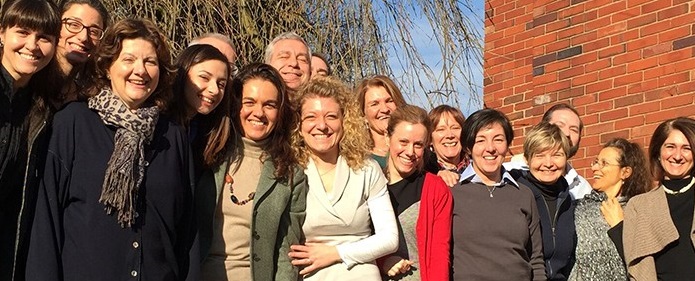
Enhancing the educational experience and inclusion of children with autism
The University of Birmingham is improving the lives of children with autism - with the help of Erasmus+ funding.
The world-renowned university’s Transform Autism Education (TAE) project aimed to improve educational practice for pupils with the disorder in the UK, Greece and Italy.
The project brought together a community of researchers, policy makers and practitioners to explore good autism practice in education and, from this, create professional development programmes in Greece and Italy.
Through these programmes, the partners were able to enhance the knowledge and practices of school staff and facilitate the inclusion of autistic children in primary schools.
The UK Autism Education Trust collaborative training schemes formed the basis of the project, with the materials being adapted to suit the needs of each national context.
The partners developed all the materials through consultation with those with autism, expert reference groups, regional authority staff and teachers.
A big impact
Dr Karen Guldberg, Director of the Autism Centre for Education and Research at the University of Birmingham, explained how inclusion was at the heart of the project.
"This project is about getting people to see that it's not about trying to change the person with autism, it's about understanding we can provide a much more enabling environment for people with autism if we change the way we communicate or the way we structure our classrooms," she said.
TAE project manager Rebecca Wood was delighted to be able to include autistic people in activities as the project developed.
She was particularly inspired by Damian Milton, Head of Autism Knowledge and Expertise for the National Autistic Society, whose son was diagnosed at the age of two. Damian was also diagnosed with Asperger’s at the age of 36, so his personal insight was integral.
“Following a conversation with Damian, I planned much greater participation of autistic people in the Birmingham transnational meeting in October 2016,” Rebecca said.
“I arranged for there to be a number of autistic speakers and presenters, and made sure there was a quiet room available at all times, as well as other forms of support. The majority of speakers and presenters were autistic, showing that their participation extended well beyond tokenism.
“The feedback forms from both the multiplier event and the transnational week demonstrated that the delegates had really valued the participation of so many autistic adults.”

Participants all felt the TAE project had a big impact on them and their work.
Roberta Sala, a psychologist, educator, psychomotor therapist from Italy, felt equally strongly about the inclusion of those with autism.
“I have been so aware of the importance of talking about autism, as Damian Milton says, with people with autism and not just about them. That is why for me it was enlightening to have involved an autistic adult in this adventure.
“Collaboration with an autistic adult has opened the door to reflection on the need to rethink inclusion not as a one-sided experience, but as a mutual condition, based on appreciation and valorisation of our different ways of being and working inside a group.”
Influencing educational practices
Pam Simpson, Assistant team manager for the Communication and Autism Team at Birmingham City Council, explained how taking part had influenced her team’s practice.
“It changed our thinking about autistic participation, which can often be tokenistic, and helped us to understand that an autonomous voice is a requirement for the wellbeing of those with autism and that genuine engagement is essential for change,” she said.
“We were empowered to take back this message to our team of advisory teachers working in mainstream schools in Birmingham to support children and young people with autism, their parents and school staff. It led to a strong focus on re-evaluating current thinking and practice within the team.”
Elena Gioroukou, a psychologist from Greece, reflected on how her views changed as a result of the project.
“In the first transnational meeting in Birmingham, I was impressed by the different approach towards autism and autistic people,” she said. “It felt it was the right way to be with autism.”
“It changed the way I understood autism, the way I understood intervention and mostly it changed my expectations of people with autism - not less but different. The approach was very different to the Greek medical model of understanding autism.”

As a result of her experience, Elena began to implement her learning in her everyday work when she returned to Greece.
“I tried to share the values that struck me in the beginning of the project: respecting the child, respecting autism, listening to the child’s opinion, understanding and interpreting children’s behaviours in order to find solutions to difficulties in the classroom,” she said.
“We analysed behaviours, we tried interventions and we found solutions to problems, making teachers feel confident in supporting children with autism and making children in classes less stressed and happier.”
Broadening horizons
The project has been wide-reaching and serves as an example of good practice for those looking to make educational practices more inclusive. More than 1,600 school staff in Greece engaged in the training and the Italian team launched their own, bespoke professional development programme at the final TAE conference in June 2017, having already engaged over 200 participants in the training programme.
"Working internationally has broadened not just my horizons, but the horizons of everyone that was involved in the project," said Karen. "It has made us really try to understand different contexts and that inclusion can look very different in different countries.
"You really need to understand the context before you can understand how to change people's mindsets and practice."
The work has resulted in a sustainable model of good autism practice in partner countries and has made a contribution to local, national and international knowledge, skills and experience.
Is your project #InspiringInclusion? Let us know on Twitter and your story could be featured too!
